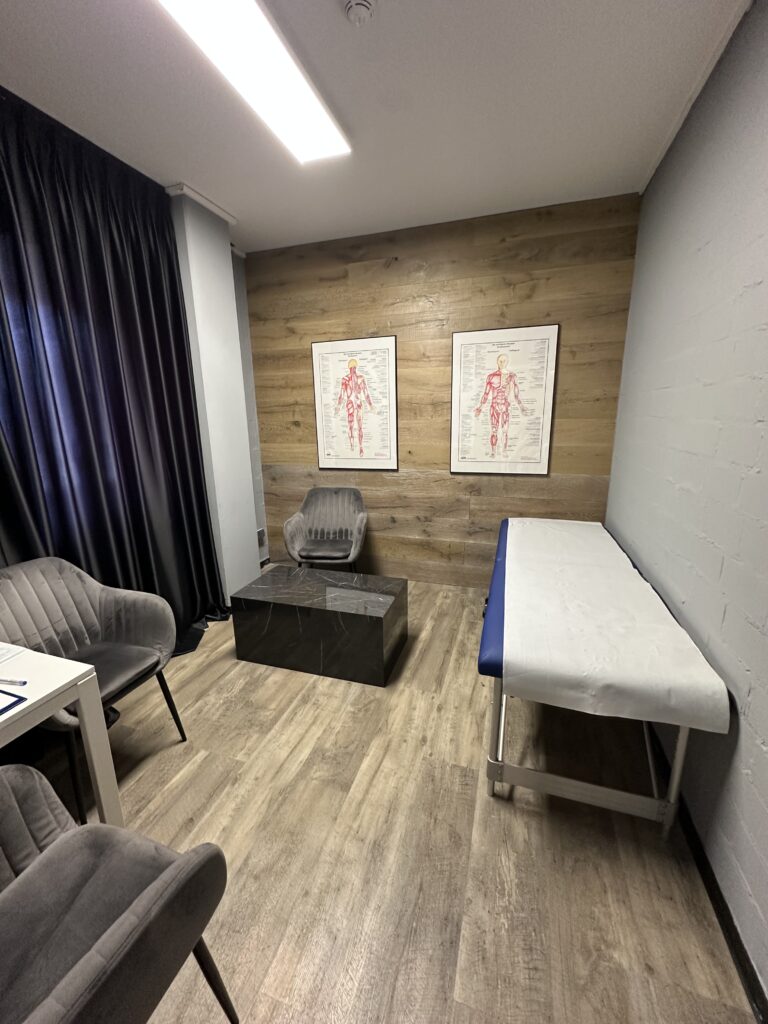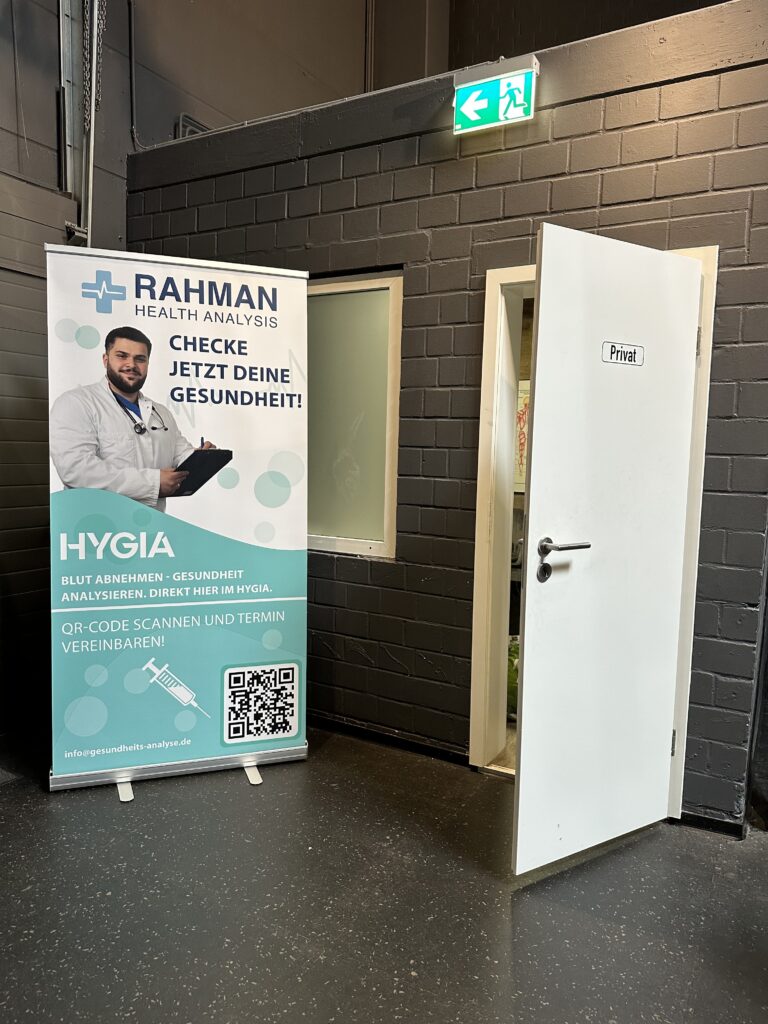Diabetes prevention
Diabetes mellitus is one of the most common metabolic diseases - it often develops gradually over many years without symptoms appearing. This makes early prevention all the more important.
With a simple blood test, changes in the sugar metabolism can be recognised at a very early stage. The decisive laboratory value here is the so-called HbA1c value, also known as "long-term blood sugar".

What does HbA1c mean?
The HbA1c value shows how high the blood glucose level was on average over the last 8-12 weeks. It is therefore one of the most important markers for the early detection of prediabetes or incipient diabetes.
In addition to the HbA1c, we also test if necessary:
- Fasting glucose
- Insulin levels
- HOMA index for insulin resistance
- Inflammation parameters such as CRP
- Liver values (e.g. for fatty liver risk)


Why prevention makes sense
Elevated blood sugar puts long-term strain on the cardiovascular system, blood vessels, nerves and organs - even if you still feel healthy. The earlier changes are recognised, the better they can be counteracted - with exercise, diet or medical support.
In our practice, we discuss your values in detail, explain correlations and show you specific steps you can take to improve your metabolic situation - individually and in line with your daily routine.
Have your blood values checked now
Make an appointment for your personal diabetes screening - uncomplicated, individual and well-founded.

Frequently asked questions
Our practice focuses on your health and well-being.

What exactly is the HbA1c value?
The HbA1c value indicates the average blood glucose level over the last 2-3 months. It is therefore also referred to as "long-term blood glucose". It is particularly important for the early detection of diabetes or a so-called prediabetes disorder.
When should I have my blood sugar tested?
A blood glucose analysis is particularly useful for
Overweight or lack of exercise
Family history (e.g. parents with diabetes)
Constant loss of energy, lack of concentration or ravenous appetite
planned dietary changes or training optimisation
It is also recommended as part of general preventive healthcare - regardless of age.
What happens if my HbA1c value is elevated?
An elevated HbA1c value does not automatically mean that you already have diabetes. It is much more common to have so-called prediabetes - a preliminary stage that can be regulated very well through a targeted diet, exercise and lifestyle changes.
In our practice, we will discuss your results with you in detail and develop a suitable plan.
How does the examination work?
The blood glucose analysis is carried out using a simple venous blood sample. We then analyse the most important metabolic values (incl. HbA1c) in our partner laboratory. After a few days, we discuss the results in person - including recommendations for action.
Is the check covered by health insurance?
Our practice works on a private medical basis. This means that the costs are usually covered in full by private health insurance companies. As a self-payer, you can also take advantage of the examination independently of insurance. We will be happy to provide you with transparent information about the costs in advance.
How often should you check your blood glucose levels?
Depending on the initial value and risk factors, we recommend a check-up every 6-12 months. Shorter intervals may also be advisable in the case of abnormal values or ongoing adjustments to training/nutrition.
Can I improve anything through diet alone?
Yes - especially in the early stages (prediabetes), a targeted change in diet can significantly reduce blood sugar levels. For example, a low glycaemic index, sufficient fibre and a good protein intake are important. On request, we can give you personalised nutritional recommendations based on your blood values.
I am active in sports - do I still need a blood glucose analysis?
It is important to know how your metabolism reacts to stress, especially if you train regularly. Unbalanced blood sugar levels can have a major impact on performance and recovery - even without classic symptoms. The analysis helps to better control training and nutrition.
What is the difference between fasting glucose and HbA1c?
The Fasting blood glucose measures the current sugar level after a fasting phase (at least 8 hours). The HbA1cshows the average value over several weeks. Both values complement each other in prevention - however, HbA1c is considered a reliable early indicator.